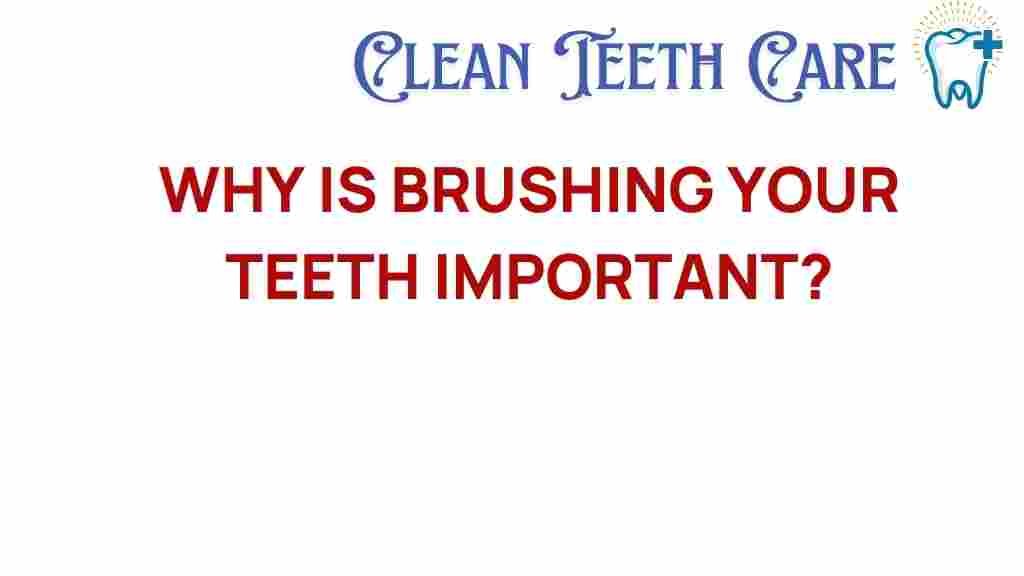The Hidden Dangers of Neglecting Your Oral Hygiene
Maintaining proper oral hygiene is crucial for overall health and well-being. Many people overlook the importance of regular dental care, which can lead to severe consequences such as tooth decay, gum disease, and other health issues. In this article, we will explore the hidden dangers associated with neglecting your oral hygiene, and provide you with essential health tips to protect your dental health.
Understanding Oral Hygiene
Oral hygiene refers to the practice of keeping the mouth, teeth, and gums clean and healthy. This is primarily achieved through regular brushing and flossing, along with routine dental check-ups. Good oral hygiene helps prevent the buildup of plaque, the primary cause of tooth decay and gum disease.
The Consequences of Poor Oral Hygiene
Neglecting your oral hygiene can lead to serious health issues:
- Tooth Decay: When plaque accumulates on teeth and is not removed, it can harden into tartar, leading to cavities.
- Gum Disease: Poor oral hygiene can lead to gingivitis, an inflammation of the gums, which can progress to periodontitis if untreated.
- Bad Breath: Accumulation of bacteria and plaque can result in persistent bad breath.
- Increased Risk of Systemic Diseases: There is evidence linking poor dental health to conditions such as heart disease, diabetes, and respiratory infections.
The Importance of Preventive Care
Preventive care is essential to maintaining good dental health. By adopting a proactive approach to oral hygiene, you can significantly reduce the risk of developing serious dental issues. Here are some preventive measures to consider:
1. Regular Brushing of Teeth
Brushing your teeth at least twice a day is fundamental to good oral hygiene. Follow these steps for effective brushing:
- Use a fluoride toothpaste to help strengthen tooth enamel.
- Brush for at least two minutes, ensuring you cover all surfaces of each tooth.
- Use a soft-bristled toothbrush to avoid damaging your gums.
- Replace your toothbrush every 3-4 months or sooner if the bristles are frayed.
2. Daily Flossing
Flossing helps remove plaque and food particles from between teeth where a toothbrush cannot reach. Make it a habit to floss at least once a day.
3. Regular Dental Check-Ups
Schedule routine visits to your dentist every six months for cleanings and examinations. This will help catch any issues early before they become serious problems. Your dentist can also provide tailored advice for your children’s dental care.
4. Healthy Diet Choices
Your diet plays a significant role in your oral hygiene. Consider these health tips:
- Limit sugary snacks and beverages, as they contribute to tooth decay.
- Incorporate crunchy fruits and vegetables, which help clean teeth naturally.
- Drink plenty of water throughout the day to help wash away food particles and bacteria.
Common Oral Hygiene Mistakes
Many people make mistakes that can hinder their oral hygiene. Here are some common pitfalls to avoid:
1. Inconsistent Routines
Irregular brushing and flossing can lead to plaque buildup. Stick to a consistent oral hygiene routine.
2. Using the Wrong Technique
Brushing too hard or not using the correct technique can damage your teeth and gums. Use gentle, circular motions when brushing.
3. Ignoring Dental Issues
If you notice signs of gum disease or tooth decay, such as bleeding gums or persistent pain, don’t ignore them. Seek dental care promptly.
4. Neglecting Children’s Dental Care
Children require special attention when it comes to oral hygiene. Establish a fun and engaging routine for them, and teach them the importance of brushing and flossing. Here are some tips:
- Start brushing your child’s teeth as soon as they appear.
- Use a pea-sized amount of fluoride toothpaste.
- Encourage them to brush for two minutes and make it a fun activity.
- Regularly schedule dental check-ups for your child to ensure their teeth are developing properly.
Troubleshooting Oral Hygiene Issues
If you find yourself facing challenges with your oral hygiene, consider these troubleshooting tips:
1. Bad Breath
If you struggle with bad breath despite good oral hygiene, it may be due to:
- Dry mouth – stay hydrated and consider sugar-free gum to stimulate saliva production.
- Gum disease – visit your dentist for a thorough examination.
- Food particles stuck between teeth – ensure you are flossing daily.
2. Sensitive Teeth
Tooth sensitivity can be a sign of enamel erosion or gum recession. To address this:
- Use toothpaste designed for sensitive teeth.
- Avoid very hot or cold foods and beverages.
- Consult your dentist about possible treatments.
3. Bleeding Gums
Bleeding gums can indicate gingivitis or more serious gum disease. If you notice bleeding:
- Ensure you are properly brushing and flossing.
- Consider using an antibacterial mouthwash.
- Schedule an appointment with your dentist for a professional cleaning.
Conclusion
Neglecting your oral hygiene can have serious consequences for your dental health. By following the preventive care tips outlined in this article, you can significantly reduce your risk of tooth decay, gum disease, and other health issues. Remember that good oral hygiene is not just about maintaining a bright smile; it is about safeguarding your overall health. Start today by implementing these health tips and ensuring that you and your children prioritize oral hygiene for a healthier future.
For more insights on maintaining good oral hygiene, check out this resource. Additionally, if you need more information on children’s dental care, visit this link.
This article is in the category Hygiene and created by CleanTeethCare Team
